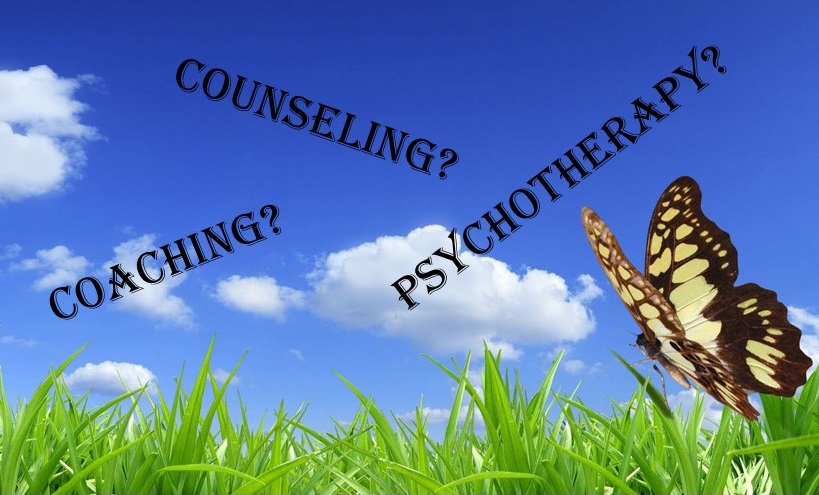I have recently read: “if we want to be healthy as a whole, mental health has to play a role”. I kept on thinking about mental health and suddenly realized that it can be quite difficult to understand the subtle differences in between coaching, counseling and/or psychotherapy approaches that you can get after talking to your GP and Nurse Practitioner.
It is pretty common to experience trouble deciding whether to hire a counselor, a therapist or a coach. Boundaries are not always clear, but certainly making the right choice between one and the other will make a difference in whether you get what you want out of it or not.
Here I’m offering some of the most common distinctions and highlights in between one and the other.
Coaches work with clients towards specific life goals to foster their growth given that there are no limiting emotional difficulties of any kind, while counselors work with people with thinking, emotional, and/or behavioral problems due to past or recent events, traumas, and/or chemical imbalances.
The goals coaches set up are usually measurable, and the result of the actions required to reaching that goal are quite visible to both, the client and the outside world. Counselor’s goals are aimed to change the emotional distress, repetitive thoughts, and behavioral issues; therefore change is not so noticeable for everyone else.
On a regular coaching session you would be asked to move forward towards reaching your goals by taking effective and specific action. Coaching focuses on identifying your goals for both, present and future. Enquiries, diagrams and exercises are often used during this sessions. If your issues are practical and you have a high motivation coaching can be effective. However, it can be limited for addressing deeper or long-term problems because coaching mostly does not include the past history.
To better understand and get through repetitive patterns, counseling or psychotherapy would be the best choice to make in order to get that ‘extra’. Counseling sessions explore the origin of the issue at hand, whilst looking for a way to develop new strategies to confront or deal with the emotional distress and barriers getting in your way to move forward and achieve your goal.
Counseling can sometimes be a slower process than coaching, but this is not always the case. It is important to take note that there is no factual information suggesting that one is better than the other or that they cannot actually coexist.
Both Psychotherapy and Counseling are usually called ‘talking therapies’ because it frequently consists of questions, reflections, and summaries which enable you to better understand the challenges at hand to further unveil the best way for you to address them. Some psychotherapies, such as the Solution Focused Therapy, Gestalt Therapy, or Cognitive Behavioral Therapy (CBT), have some additional elements that include a stronger focus on the future somewhat similar to coaching. Suggestions, experiments and exercises are often used in this kind of psychotherapies so you can begin to deal with difficult feelings whilst proactively moving forward to your present and future desires.
Regardless the challenges you are facing on a daily basis, each therapy approach has certain strengths and limitations attached to it, but rest assured that there is always a way -a bridge if you will- that will connect the place you are in right now, to the place you want to be at (aka your goal).
In general, if you happen to be experiencing stress because of the lifestyle choices you have made, a coach could probably help you best, but if you are experiencing anxiety because of the way you ‘read’ the world around you (emotions and thoughts), a counselor or therapist would probably be a better choice.
Rebeca.
















